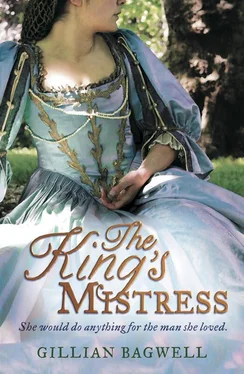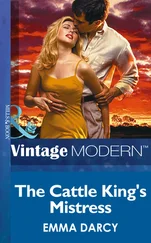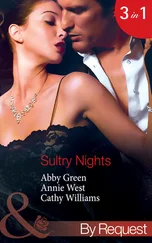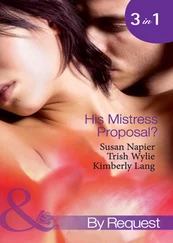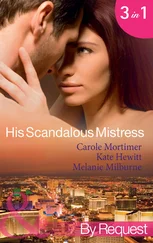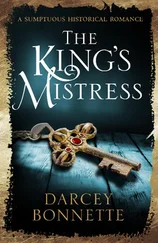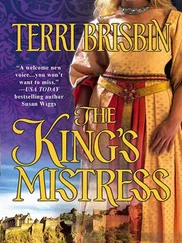Jane made to step forward, but Henry’s hand on her arm stayed her. Charles glanced around as if in astonishment, his mouth gaping open.
“Beg pardon, your worships.”
His accent was thickest Staffordshire, as if he had grown up in the country around Bentley Hall. A burly sergeant, tall but not so tall as Charles, shoved him hard and glowered at him.
“You whoreson fool! Do you need teaching manners?”
He pulled back his fist, and Charles flinched as though in fear.
“Kick him like the dog he is, Johnno,” another soldier called, and there was a chorus of laughs.
Charles plucked his hat from his head and hung his shoulders in sheepish apology.
“I’m sorry, your worship. Most sorry, sir.”
Johnno stood sneering at him, as if deciding whether to strike him or not, but then shrugged.
“Well, get on with you, then. And let it be a lesson to you for next time.”
“Oh, yes, sir,” Charles said, tugging at his forelock and grinning like a child reprieved from a whipping. “Thank you, sir.”
Nodding at the muttering soldiers to either side of him, he ambled towards the stable with the horses.
“I still say you should have thrashed him,” a second sergeant called out to Johnno.
“Not worth dirtying my coat.”
The men laughed, and turned their attention back to whatever they had been doing when they were interrupted.
“WITH ALL THESE SOLDIERS I’VE ONLY BUT TWO ROOMS LEFT,” THE landlord said. “And not even room for your servant in the stable. He’ll have to sleep on a pallet in your room, sir.” He had witnessed the scene in the stable yard, and grinned at Henry. “Perhaps it’s just as well you keep the fool out of harm’s way.”
They ordered food to be brought upstairs rather than going down to the taproom to eat, and by the time Jane had washed her face and hands, the men were already waiting in Henry’s room. Charles, in breeches and shirtsleeves, was lounging on a chair near the fire, his long legs stretched before him and his feet propped on a stool. He looked like a great cat, Jane thought, watching the play of his muscles beneath the linen of his shirt. There was something catlike about the glint in his eyes, too, as he gave her a lazy smile.
“Well,” he grinned. “I reckoned that blundering among the troops would anger them so that they’d not think to look beyond their rage, and so it did. But the ostler had keener eyes. As soon as I came into the stable, I took the bridles off the horses, and called him to me to help me give the horses some oats. And as he was helping me to feed the horses, ‘Sure, sir,’ says he, ‘I know your face.’”
Jane gasped and Henry looked at him in alarm, and Charles nodded wryly.
“Which was no very pleasant question to me, but I thought the best way was to ask him where he had lived. He told me that he was but newly come here, that he was born in Exeter and had been ostler in an inn there, hard by one Mr Potter’s, a merchant, in whose house I had lain at the time of war.”
“What ill luck!” Henry exclaimed.
“I thought it best to give the fellow no further occasion of thinking where he had seen me, for fear he should guess right at last. Therefore I told him, ‘Friend, certainly you have seen me there at Mr Potter’s, for I served him a good while, above a year.’ ‘Oh,’ says he, ‘Then I remember you a boy there.’”
Jane laughed at Charles’s impersonation of the ostler, nodding in sage satisfaction.
“And with that,” Charles continued, “he was put off from thinking any more on it but desired that we might drink a pot of beer together. Which I excused by saying that I must go wait upon my master and get his dinner ready for him, but told him that we were going for London and would return about three weeks hence, and then I would not fail to drink a pot with him.”
“Quick thinking, Your Majesty,” Henry grinned.
A knock at the door heralded the arrival of dinner. Once the kitchen boy was gone, Jane made to serve Charles, but he waved off her attentions and begged her and Henry to sit and eat with him.
Riding pillion for so many miles was wearying, and Jane’s body ached in unaccustomed places. The men appeared exhausted as well, and hot food and warmed wine brightened their spirits and revived their energy.
“Do you know”—Charles smiled over a leg of chicken—“I begin to think that I may be safe after all. Only one more day of riding, and we shall be at Bristol.”
“And nothing will hinder us from getting you there, Sire,” Henry said, “though it costs my life.”
Charles looked from Jane to Henry. “I can only hope that I will see the day when I can honour you as I wish for the help you have given me. I have been much humbled by the love and care shown to me by so many of my people these last days. Most of them have been poor folk with little enough for themselves, but they’ve risked their lives to keep me safe, and offered all they have. Indeed, one of them gave me the shirt off his back, quite truly.”
He plucked at his shirt, now grimy from the ride but clearly new.
“The people love you, Your Majesty,” Jane said. “And pray for your return.”
But none of them love you so well as I do, she thought, watching the flickering firelight play on his face.
Charles looked around the room, cosy with the fire crackling, its light chasing the shadows away, and smiled.
“A bed to sleep in tonight! I will ne’er take such comfort for granted again.”
“Of course you shall have the great bed, Your Majesty,” Henry said, “and I will take the pallet.”
“Even a pallet would be welcome,” Charles laughed, “and a great improvement from doubling myself up in priest holes, and a day spent sleeping in a tree.”
“In a tree?” Jane asked in astonishment.
“Yes,” Charles said. “When I was at Boscobel, the Giffards feared I would be discovered if I stayed within, even in the priest hole, so I spent a long day in an oak some little way behind the house, my head resting upon the lap of one Colonel Carlis, who I think you know?”
“Yes, an old friend,” Jane said.
“Cromwell’s men were searching in the woods nearby, and it scarcely seemed possible that we should escape detection. And yet despite all that, I was so tired, having gone three nights without sleep, that I slumbered, my head resting on the good colonel’s lap.”
“Will you tell us of the fight at Worcester, Your Majesty?” Henry asked, pouring more wine for all of them. “We’ve only heard pieces of the story, and none from any who know what happened so well as you.”
Charles’s eyes darkened, and Jane thought of the stories of confusion, despair, and horror she had heard from the soldiers fleeing from the battle.
“It was a desperate venture, in which people were laughing at the ridiculousness of our condition well before the battle. We had been three weeks marching from Scotland, with the rebels pursuing us, when we limped into Worcester. We knew Oliver was on his way with thirty thousand men, and I had but half that number, hungry, sick at heart, already worn out, many lacking even shoes to their feet.”
Jane thought of the ragged survivors on the road past Bentley the day after the battle. It was a wonder any had survived at all, she thought, if they had begun in such desperate condition.
“We needed every advantage we could get. We blew up the bridges leading to the town, dug earthworks, built up the fort, and waited. When at length Cromwell came, he fired upon the city, but made no further move for three days.”
Charles was on his feet now, pacing. Jane could imagine only too well the tension of the young king and his soldiers, knowing the battle would come but not when, having to stay vigilant and ready despite their exhaustion and apprehension.
Читать дальше
